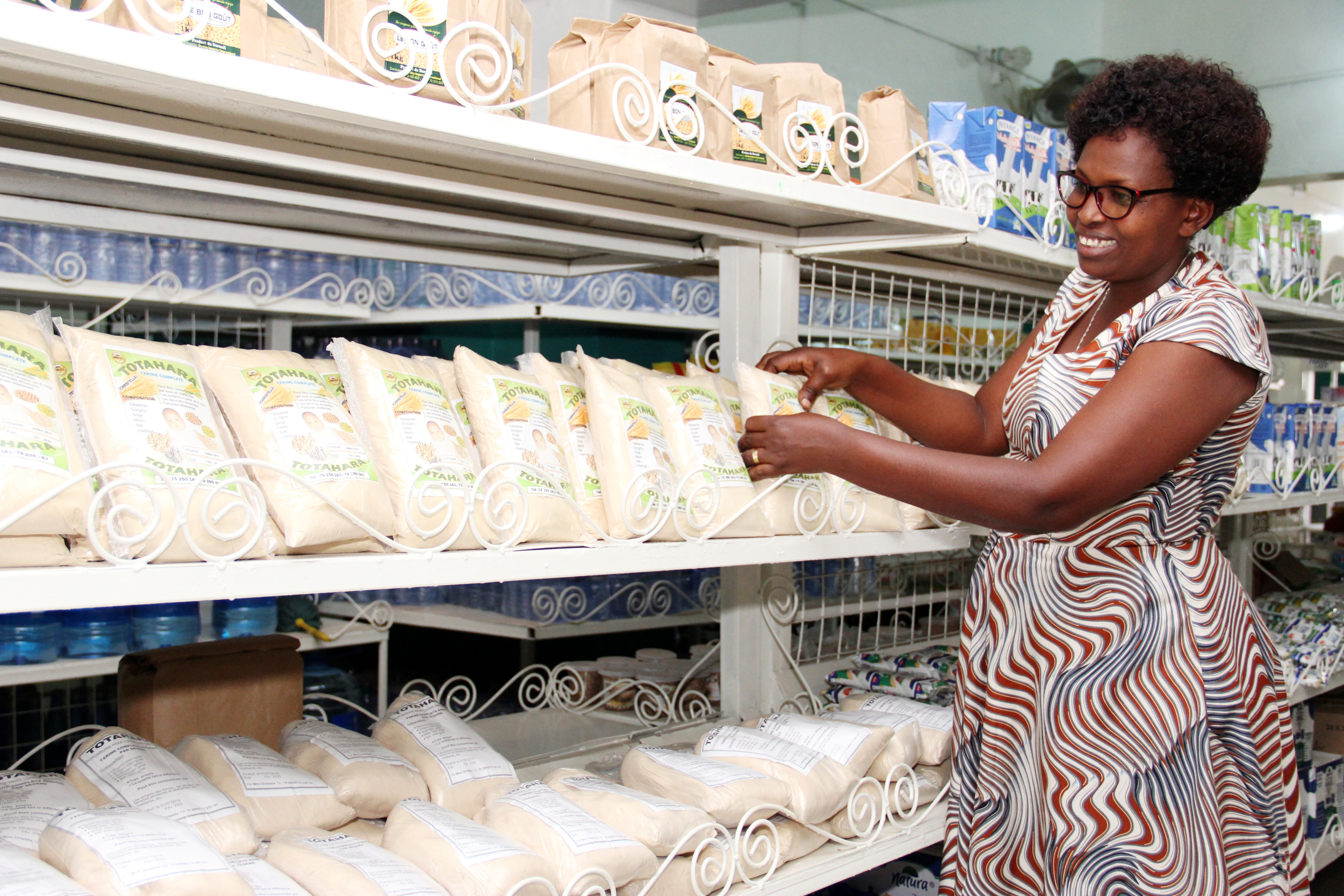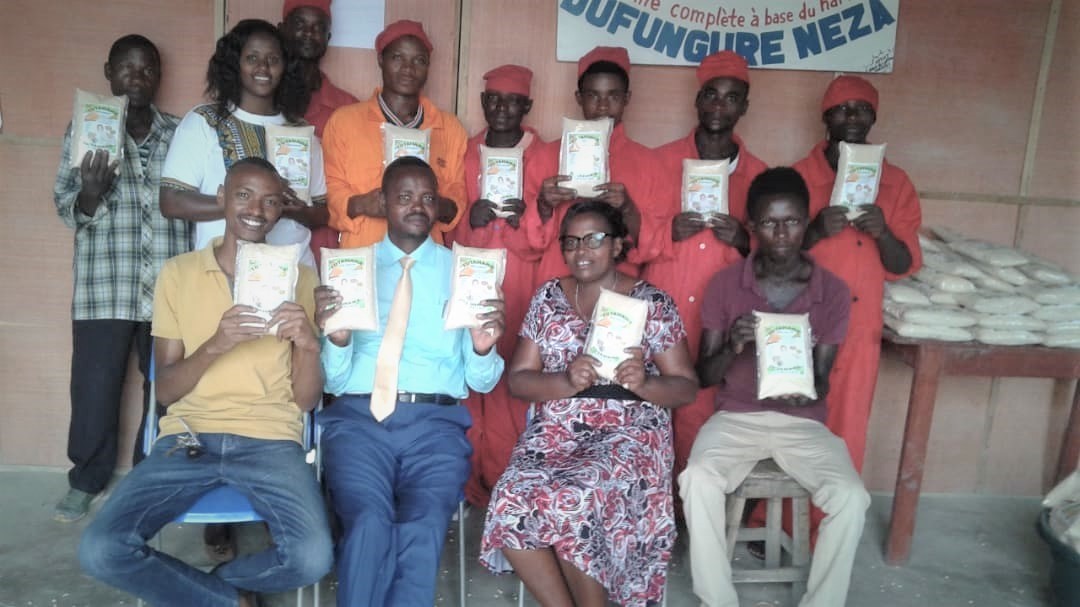A case of Ms. Christella Ndayishimye from Burundi
The political unrest that rocked Burundi in 2015 plunged the country into a crisis of displaced population and food shortage. Through the Institut des Sciences Agronomiques du Burundi (ISABU), the Canada-funded Improving Bean Productivity and Market Access Project recognized the potential of a small enterprise known as “Totahara”. Working together, Totahara was able to increase its operational capacity to produce additional bean-based products to address income and nutritional concerns of target communities.
Owned by Ms. Christella Ndayishimye, a nascent entrepreneur and mother of four children, “Totahara” (meaning “to be healthy” in Kirundi) started out as a small enterprise (SE) in 2009. “I started the factory with nine employees working on a temporary contract. Currently, I have employed 11 more people on full time and permanent contracts. My supportive husband has also joined the team and works fulltime in the business. From one shop, I am now distributing Totahara flour to 40 other shops and also work with the Burundi Ministry of Health and NGOs such as World Vision to promote nutrition through bean composite flour. “It is not easy to be a successful businesswoman in a male-dominated environment, but learning, consistency, and commitment is my key to business success,” she added. Since 2018, World Vision (NGO) has used the Totahara flour to address malnutrition in 22 pilot community schools. A year into using the flour, the stunting levels in these schools has been reduced from 58% to 52%.
In addition, Totahara has received PABRA’S support through Global Affairs Canada (GAC) to enhance its capacity. “Having started using common pots, I now use improved roasting equipment, grading and packaging materials for the flour. I have also expanded the processing area, and acquired the flour milling and roasting machine to handle the increasing load. I am thankful for the confidence CIAT and ISABU have in my entrepreneurship spirit and their support in bringing my factory to where it is.” she said. To ensure a sustained supply of beans, Totahara is linked to over 200 women farmers planting bio-fortified beans varieties.
Totahara’s business profits are growing. When it started in 2009, the business produced one ton per month of the flour. In 2018, the capacity grew to 75.4 tons of bean-based flour, earning an income of US $ 102,359. Not only are the sales going up, she is also sharing the knowledge of mixing composite flour she has acquired with various groups. She has mentored two other flour milling SMEs, Rengerubuzima and KAFLOB, to embrace the selling of bean composite flour. Both of them are now making significant sales of the products per months, 1.5 and 5 tons per month, respectively. She has also traveled to Madagascar to train other processors who are handling bean-based flours, and plans to spread her wings to offer the same training in Tanzania and DRC.
“The business is doing so well. I have bought a new car to help me reach more customers with the flour. The demand for the bean flour has more than doubled and the factory has increased production capacity. Currently the factory is selling on average 10 tons of bean composite flour per month,’’ she noted.
The future certainly looks bright for Totahara. “We are in partnership with the Ministry of Health in Burundi to integrate the nutritious bean flours into school feeding programs, a move that will reduce the malnutrition index in Burundi. My dream is to expand production of the bean based flour to 50 tons per month, expand Totahara’s market base and support 5000 farmers to sell their beans,” Christella


